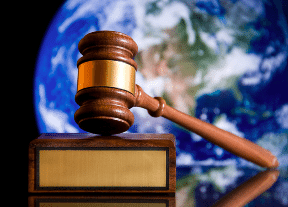As an attorney, I write a lot of contracts — terms of use, privacy policies, employment agreements, leases, and non-disclosure agreements, among others. However, what most people don’t understand about agreements, even when written by an attorney, is that they need to stay living, breathing documents. The document that gets written for your business today may not be the document that you need tomorrow. So when should you have contracts reviewed?
Below is a general guideline. Although the list isn’t exhaustive, it should help you plan your legal needs throughout the year. Your situation may vary so it is always best to ask your attorney what she recommends as a timeframe for review of contracts.
Non-Disclosure and Confidentiality Agreements
Non-disclosure agreements (NDAs) and confidentiality agreements tend to be the agreements that get reviewed the least. Attorneys tend to write them to be very generic and open-ended. Whether you are selling widgets, gidgets, or gadgets, your NDA probably says that you and the other party are exchanging something like “business ideas, concepts, and information” and that anything disclosed that is not public information needs to be keeps confidential until it ends up in the public domain through no fault of the party receiving the confidential information. Because of this, I usually tell clients that they should have these agreements reviewed once a year or so at most unless the other party wants to make changes or my client wants to make changes, in which case the agreement should be reviewed prior to being signed with any changes.
Employment Agreements
Employment agreements need to be reviewed on a regular basis and when anything changes with the type or location of employee you are hiring. Review should occur at least on a yearly basis to incorporate any changes to employment law in your state. In addition, a review should also occur immediately if any of the following happen.
- You hire someone in another state. This is due to state laws vary on everything from minimum wage to benefits required.
- You hire someone in a position you didn’t have before.
- You promote someone to a position you didn’t previously have.
- You want to give more benefits to someone.
- You want to give fewer benefits to someone.
- You want to demote someone – whether for performance or necessity.
Website Agreements
Website agreements — terms of use, privacy policies, copyright policies — should be reviewed at least every two years. In addition, the agreements should be reviewed immediately if any of the following happen.
- You change your privacy practices. For instance, you start storing data that you didn’t previously; you start selling to advertisers where you didn’t before; or you start receiving geo-location info from users.
- You plan to merge your company with another company or sell your company.
- You change your business model. For instance, you start selling items that you didn’t before, you change your return policy, or you add features to your site.
- There are any changes in the laws regarding privacy policies or copyright issues.
Software Licenses
Software licenses should be reviewed at least every two years or with a version change, whichever happens first. In addition, you should also have the licenses reviewed if any of the following happens.
- You change the way the software is provided. For example, you start to charge monthly rather than having a perpetual license.
- Your change how your software functions.
- You create versions that can work with new operating systems. For example, you create a version for a Mac when you were only Windows based before.
Property Leases
Property leases should be reviewed before they are entered into and prior to being renewed. In addition, you should have them reviewed if you have any issues with your landlord, and approximately one and a half years before they are terminated to see what your renewal options are. Most leases state that you need to give a renewal notice anywhere from 365 to 180 days before the lease is up or you lose your right to renew under the terms in the lease.
Equipment Leases
Equipment leases are similar to property leases and should be reviewed before they are entered into and prior to being renewed. In addition, you should have them reviewed approximately one and a half years before they are terminated to see what your renewal options are. Unlike property leases, equipment leases typically renew automatically; you can end up with a copier, printer, or other piece of equipment for a lease payment that is much higher than the equipment is worth.
Company Documents
Your company documents should be reviewed every few years if you do not have partners and every other year or so if you do have partners. In addition, you should have your company documents reviewed in any of the following instances.
- You plan on bringing on new partners – whether they are working in the company, buying into the company, or investors.
- You are creating an estate plan or any of your partners are.
- Your company is in financial trouble.
- You or one of your partners in in financial trouble.
- You want to shut the company down.
In addition, note what documents you need to create yearly or more frequently. You may need to have board-meeting minutes, shareholder minutes, or member-meeting minutes.




